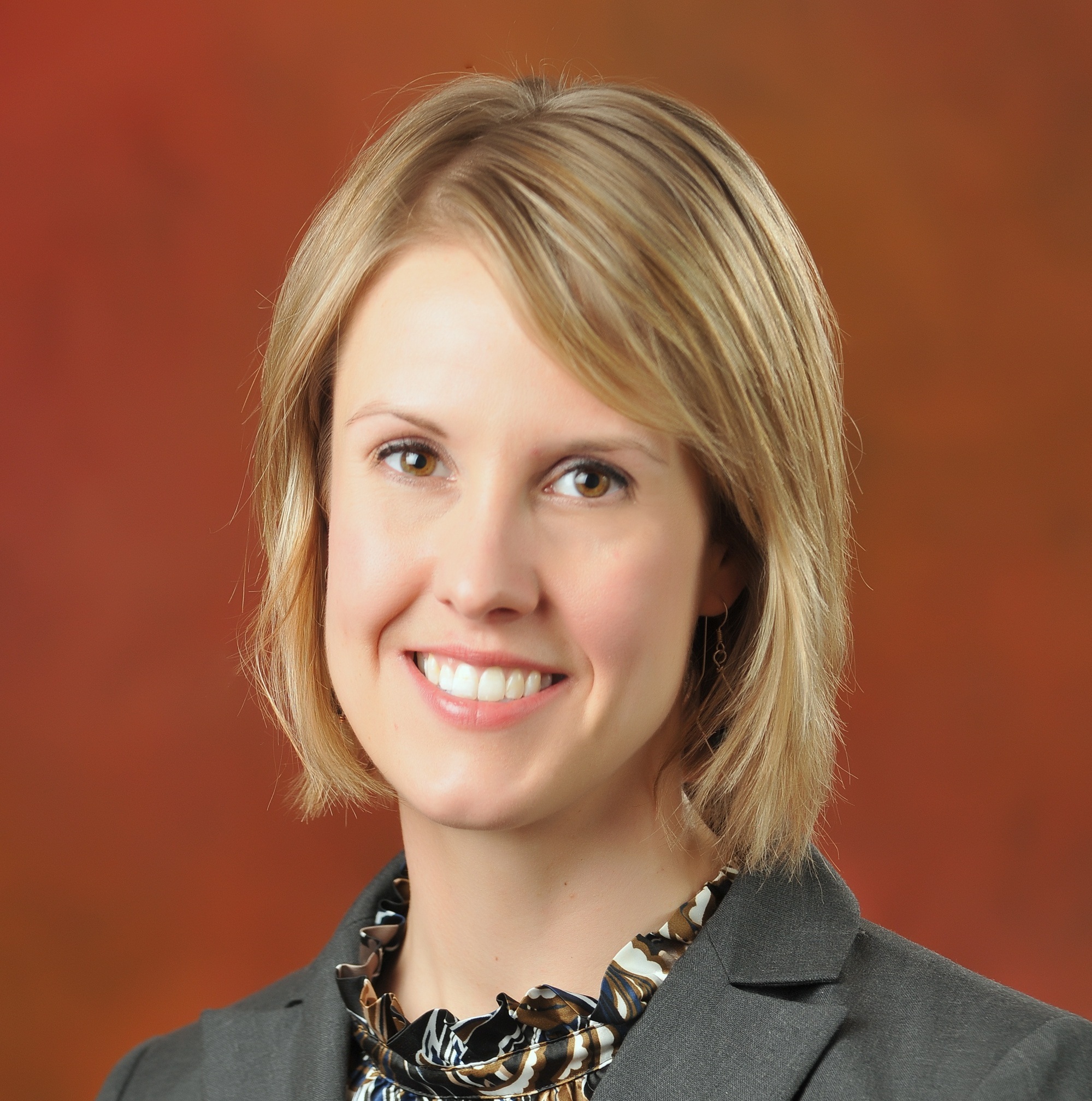EDF Climate Corps fellow | April 29, 2013
“Knocking down a brick wall by yourself with your bare fists is next to impossible. But organize a team equipped with sledgehammers and a plan, and it gets a whole lot easier,” said Gwen Ruta in a Fast Company Op-Ed explaining the concept behind EDF Climate Corps.
This blog post is the 12th in a series, highlighting our team of ‘sledgehammers’ – the 2012 EDF Climate Corps fellows– and their plans for breaking down the barriers to energy efficiency at their host organizations.
Name: Benjamin Inskeep
Host Organization: Town of Cary
School: Indiana University School of Public and Environmental Affairs
Opportunity: Inskeep was asked to research best practices for energy efficiency at fire stations in Cary, Charlotte and the North Carolina "Research Triangle" – Raleigh, Durham and Chapel Hill.
Barrier: Before investing in an efficiency or sustainability project, it's important to consider the problems that each could cause, even if similar projects have successfully been implemented at other fire stations.
- A green roof at one station ran up several unanticipated costs because it did not work well with the local climate. Many stations, on the other hand, have had success with white or "cool" roofs, which reflect sunlight and reduce cooling costs in warmer seasons.
- Another fire station discontinued biodiesel use in its fire trucks after encountering several maintenance issues, even though another station successfully fueled its fire trucks with biodiesel for more than a decade. Same technology, very different results.
- Even lighting retrofits, though tremendously successful at dozens of fire stations in the region, aren't right for every station. A lighting “upgrade” at one fire station in the Triangle reduced lighting intensity in its truck bay, meaning that regular truck maintenance required flashlights – not an ideal outcome!
Solutions Identified: To share these lessons with other fire departments, Inskeep built a website for fire-department-specific case studies, sustainability dialogue and other information with Council for a Sustainable Triangle, a Triangle J Council of Government subsidiary group. This project is bringing the sustainability conversation to an audience that may not have encountered it before. There's a great deal of opportunity to test different efficiency strategies, learn from the experience and work cooperatively to find the most promising techniques.
Quote: “The bottom line: do your homework, talk to your colleagues and then ‘go green,’ in whatever way is best for your station.”
Name: Allison Shauger

Host Organization: Philadelphia Housing Authority (PHA)
School: Pennsylvania State University
Opportunity: Philadelphia Housing Authority hired Climate Corps fellow, Allison Shauger, to scout for energy efficiency ideas.
Barrier: PHA has nearly 1,400 employees, and it has recently endured a lot of executive turnover. With senior staff changing and departments restructuring so frequently, Shauger found it hard to know where to start looking – i.e., what employees to contact first.
Solutions Identified: For Shauger, one morning that began as a tour of warehouse recycling procedures ended with Lou Fortuna, PHA’s Warehouse Supervisor, sharing ideas about how to make the warehouse more energy efficient. Not what she was expecting, but valuable insight. Perhaps more importantly, it showed her that she should consider every contact at PHA to be a potential wellspring of energy efficiency ideas. “Keep an open mind,” she said. “You might find "idea people" in places you don't expect. The more she looked, the more Shauger found that she was right. For example, speaking with a network administrator revealed that only 75 percent of PHA's computers currently use PC power management software. By installing this software, PHA could save $6,300 per year in energy costs.
Potential Savings: If implemented, Shauger's recommendations could save PHA roughly $11 million in net operating costs over the project lifetimes, as well as three million kilowatt hours of electricity and 2,500 metric tons of carbon dioxide annually.
Quote: “I realized that other employees at Philadelphia Housing Authority could have similar ideas. I wondered, how much value could their ideas add up to?”
Name: Jayesh Potdar
Host Organization: City of Cleveland
School: Case Western Reserve University Weatherhead School of Management
Opportunity: The focus of Potdar’s fellowship was to help launch a climate action plan for the City of Cleveland.
Barrier: Potdar and the City of Cleveland Mayor’s Office of Sustainability needed to gain the cooperation of City operations staff to release the data for Cleveland's Climate Action Plan.
Solutions Identified: Potdar found that office-wide engagement was crucial to communicating the significance of this data. He promoted a can-do attitude within the Mayor’s Office of Sustainability, which ultimately won the support of several senior Cleveland officials – from several different departments – and grant institutions.
Quote: “With a can-do attitude, we can overcome obstacles big or small, eventually making the changes we wish to see.”
Name: Scott Brechmacher
Host Organization: Wakefern Food Corp.
School: Indiana University School of Public and Environmental Affairs
Opportunity: Wakefern, a cooperative grocery corporation with 46 members owning 287-plus grocery stores, wanted to identify energy efficiency projects.
Barrier: Brechmacher found that getting many parties across a business with different viewpoints and different priorities to agree on any one thing can be a challenge. He realized that ultimately, each store-owning Wakefern member may perceive his recommendations as an EDF Climate Corps fellow slightly differently.
Solutions Identified: Brechmacher’s key takeaway was that when affecting change, there are many competing perspectives that will influence an outcome - including some that could support the same actions you are advocating for.
Quote: “To overcome daunting global challenges such as mitigating climate change, improving food security and eradicating pollution and poverty, world leaders must view their differences as an asset, rather than an impasse. Perhaps this New Jersey food distribution and grocery cooperative could serve as an example.”
Name: Cheri Tan 
Host Organization: City of New Haven
School: Yale University School of Management
Opportunity: The City of New Haven is convinced of the bottom-line benefits of energy efficiency and has invested in it accordingly, but it suffers from a problem common to local governments – lack of data.
Barrier: High-quality, thorough data is what enables City leaders to assess the energy efficiency of municipal buildings and invest in the energy efficiency projects that will have the highest returns. The City of New Haven, like local and municipal governments across the U.S., doesn’t have enough data to make energy efficiency investment decisions with as much confidence as it would like to.
Solutions Identified: Tan developed a centralized and streamlined reporting system that will help avoid poor investments. To ensure its viability, the report is user-friendly and requires minimal upkeep from staff. It could enable leaders to comprehensively assess the energy needs of New Haven's buildings from an energy efficiency perspective.
Quote: “It took me just days to determine that my biggest challenge this summer would be getting good data.”
About EDF Climate Corps
EDF Climate Corps (edfclimatecorps.org) taps the talents of tomorrow’s leaders to save energy, money and the environment by placing specially-trained EDF fellows in companies, cities and universities as dedicated energy problem solvers. Working with hundreds of leading organizations, EDF Climate Corps has found an average of $1 million in energy savings for each participant. For more information, visit edfclimatecorps.org. Read our blog at edfclimatecorps.org/blog. Follow us on Twitter at twitter.com/edfbiz and on Facebook at facebook.com/EDFClimateCorps.
About Environmental Defense Fund
Environmental Defense Fund (edf.org), a leading national nonprofit organization, creates transformational solutions to the most serious environmental problems. EDF links science, economics, law and innovative private-sector partnerships. For more information, visit edfbusiness.org. Read our blog at blogs.edf.org/business. Follow us on Twitter at twitter.com/EDFbiz.